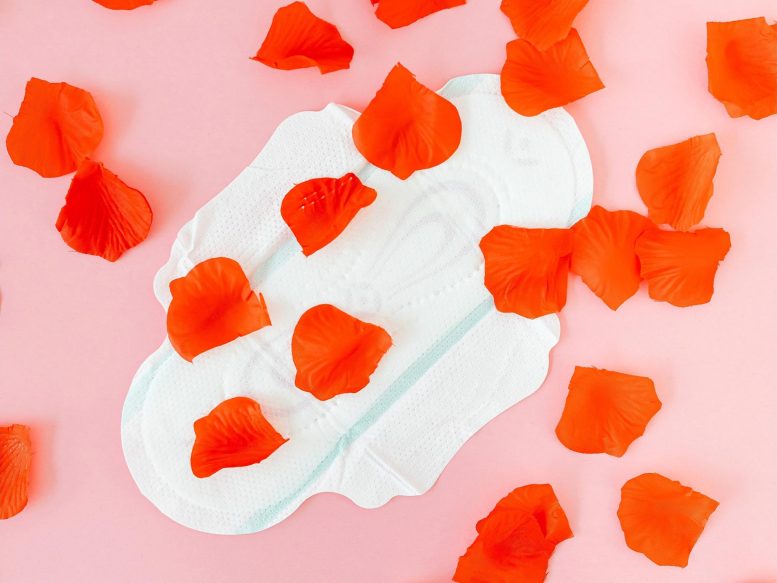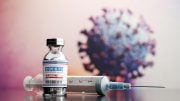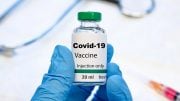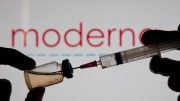
Study draws attention to potential physical and mental side effects of vaccination in people with diverse gender identities.
Many people who do not usually menstruate reported experiencing breakthrough bleeding or other period symptoms after receiving a COVID-19 vaccine, according to new findings from an online survey by researchers at Washington University in St. Louis.
The study is the first to examine vaccine-associated breakthrough bleeding in people who take testosterone or other hormones that suppress menstruation. The research focuses on individuals with a range of gender identities such as transgender, nonbinary, or gender-fluid. Previous studies of COVID-19 vaccine-related menstrual symptoms have largely focused on cisgender (cis) women, those whose gender identity matches the female gender they were assigned at birth.
“It’s important to examine the impacts of COVID-19 vaccination on menstruation and breakthrough bleeding in people who are not cis women because they are too often left out of the discussion,” said Katharine Lee, PhD, a postdoctoral research scholar in the division of public health sciences at Washington University in St. Louis, first author of the study. “I hope that this study adds to the increasing evidence that maybe we should include periods as part of vaccine research more broadly. Our findings also underscore the importance of including gender-diverse people when we study parts of biology that are closely linked with sex-based reproductive physiology like periods.”
Lee presented the study findings at the American Association for Anatomy annual meeting during the Experimental Biology (EB) 2022 meeting, which was held in Philadelphia on April 2-5, 2022.
Researchers have previously reported that some people with regular or predictable menstrual cycles experience changes in the timing or symptoms of their periods after receiving a COVID-19 vaccine, although these changes are usually temporary and there is no evidence that fertility is affected. For the new study, Lee and colleagues analyzed a subset of responses to an online survey on menstrual experiences after vaccination for insights specific to people who do not usually menstruate.
Out of over 160,000 survey respondents, the researchers identified 552 people who said they used testosterone or other gender-affirming hormones and did not usually menstruate. Most of these respondents (84%) selected more than one gender category, with 460 identifying as transgender, 373 specifying man or man identified, 241 identifying as non-binary and 124 indicating they were genderqueer/gender non-conforming.
One-third of these respondents reported breakthrough bleeding after receiving a COVID-19 vaccine, 9% reported chest or breast soreness and 46% reported having other symptoms they would usually associate with a period, such as cramping and bloating. Some respondents used the survey’s open-ended text boxes to report significant negative mental health impacts in response to their period symptoms, including anxiety, depression, gender dysphoria, panic attacks, and suicidal ideation.
Clinical trials for COVID-19 vaccines have not generally examined impacts on menstrual experiences. As a result, these potential effects are not mentioned in the safety information that is provided to vaccine recipients.
“I hope that discussing these findings openly allows people to know that this could be a side effect so they can prepare appropriately,” said Lee. “This is especially important given the fact that some people described mental health outcomes like anxiety, depression and suicidal ideation as responses to unexpected breakthrough bleeding after vaccination.”
Lee added that a better understanding of potential menstrual side effects can help to address the needs of medically underserved populations, including gender-diverse individuals, as well as help reduce vaccine hesitancy. The research team shared results from a different subset of the same survey in a preprint on medRxiv.
Lee will present this research from 11:15 a.m.–12:15 p.m. Monday, April 4, in Exhibit/Poster Hall A-B, Pennsylvania Convention Center (Poster Board Number C118) (abstract). This work will be featured in a virtual press conference from 11–11:45 a.m. EDT on Friday, April 1 (RSVP by Thursday, March 31). Contact the media team for more information or to obtain a free press pass to attend the meeting.
Meeting: Experimental Biology 2022









So, the COVID-19 vaccine causes men to menstruate. Thanks.
Is SciTechDaily transitioning to activist writing? Quoting MedRxiv, cited here, “Preprints are preliminary reports of work that have not been certified by peer review. They should not be relied on to guide clinical practice or health-related behavior and should not be reported in news media as established information.”
Non-Menstruating People
There is an old saying that, “The road to Hell is paved with good intentions. Trying to be politically correct only creates ambiguity in what the author is trying to communicate. There are many reasons why women don’t MENstruate. I don’t think that the people advocating such politically correct ‘descriptors’ are deep thinkers. And, I don’t think that just because someone identifies with a bunny rabbit means that they are a rabbit. It probably suggests some other kind of problem that is in urgent need of being addressed!
Two months after my second moderna shot I had bleeding like menstruation. Two months after that the same happened again. Menopause 24 years ago. Ultra sound can’t find any reason for it. I won’t get a booster. Maybe this will decline as moderna has less effect on my body. Other than a sore arm I didn’t get any side effects until the bleeding issue. I am nearly 71